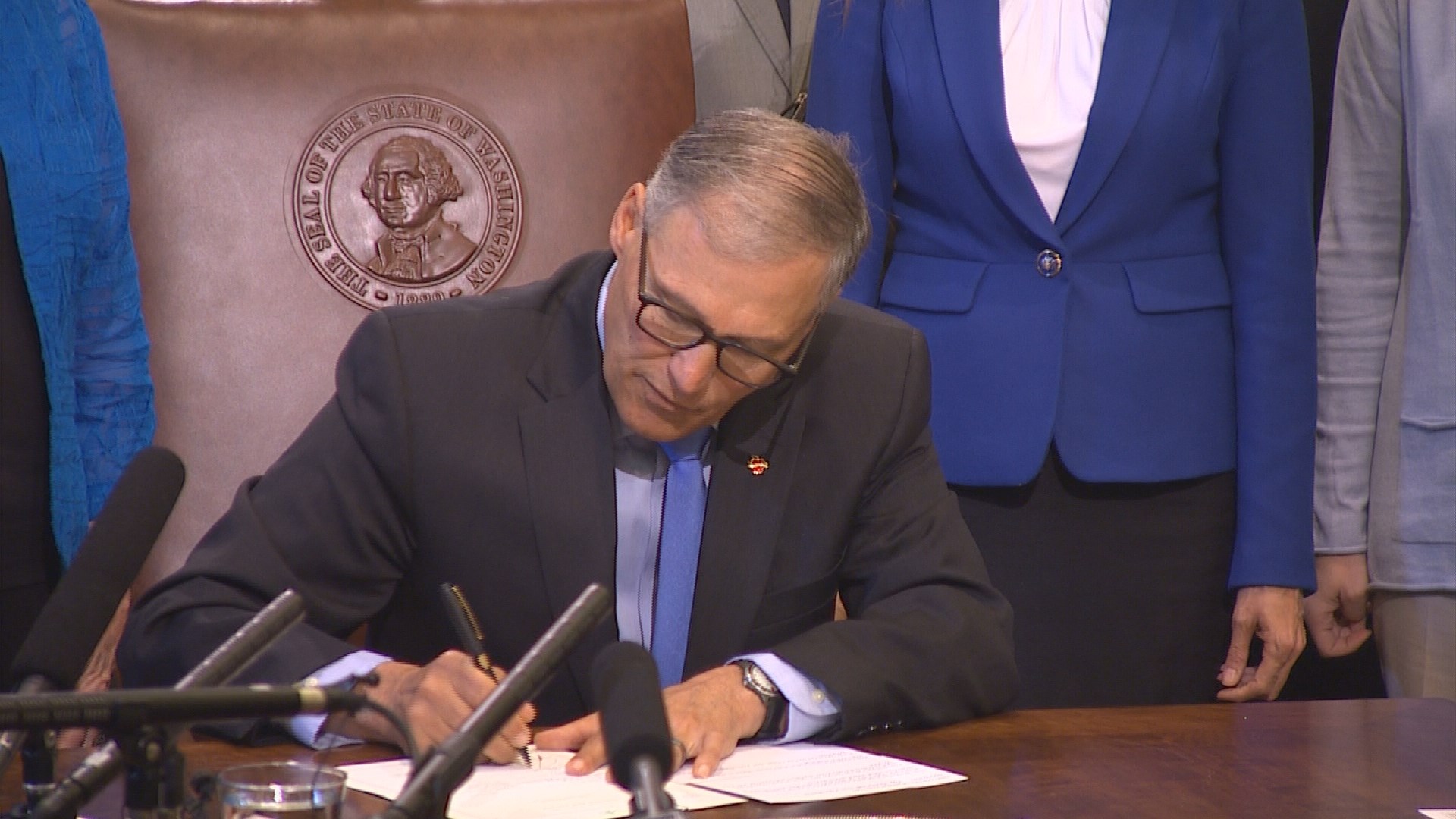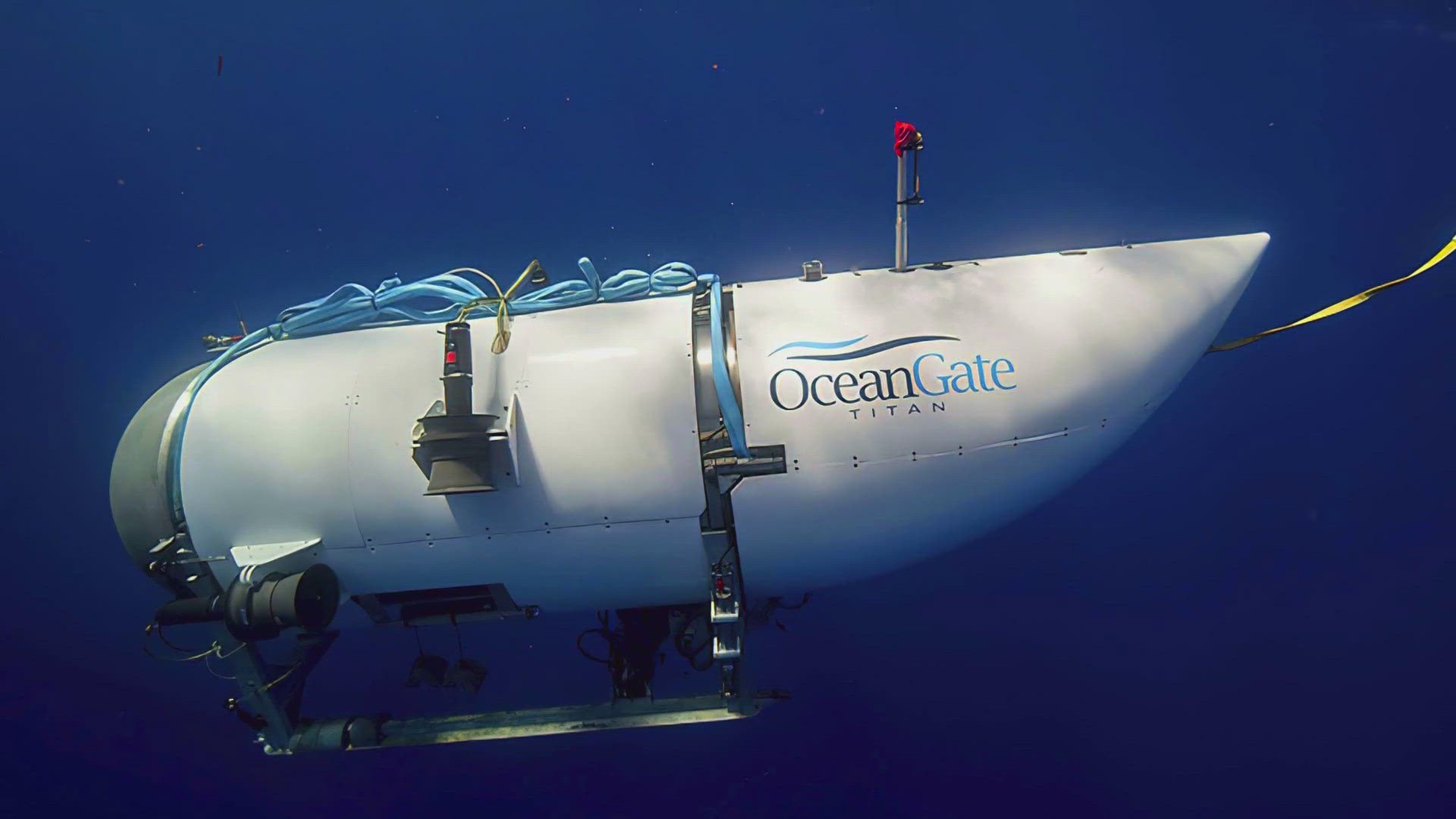OLYMPIA, Wash. -- There's new hope for rape victims seeking justice in Washington state. Governor Jay Inslee signed a new law May 14 that will require police departments to submit rape kit evidence for testing within 30 days of collection.
A KING 5 investigation revealed the majority of rape kits collected in Washington are never sent to the state patrol crime lab for testing. The Seattle Police Department had submitted just 22%--roughly one out of every five kits collected over the past decade—leaving more than 1,200 collecting dust in the evidence room.
Rape kits contain DNA and other evidence collected by specially trained nurses from sexual assault victims. The process of having a rape kit taken can be emotionally painful and exhausting for victims, often taking hours. Rep. Tina Orwall who sponsored HB 1068, signed by the Governor Tuesday, said to leave kits untested sends a disheartening message to rape victims.
"By moving forward to test kits we're giving rape victims hope and helping them to heal," Orwall said.
The new law includes $2.7 million in funding to help the Washington State Patrol Crime Lab test kits moving forward. The fiscal note must still be approved by lawmakers in the final state budget.
The Washington State Patrol Crime Lab received approximately 1,000 sexual assault cases last year and that number could double or triple this year because of the new law. The additional cases could lead to longer wait times for all criminal cases, but Gary Shutler, DNA Technical Manager for the WSP Crime Lab said they're up to the challenge.
"We are enthusiastic we can help with more sexual assault investigations and hopefully make our streets a little safer,' Shutler said.
However Shutler said the lab would be overwhelmed if it received all of the estimated 6,000 old rape kits being held by police statewide. The bill establishes a work committee to brainstorm solutions and seek funding for testing the backlog.
The Washington Association of Police Chiefs and Sheriffs, which initially opposed the bill, applied for a $2 million federal grant last week to test some of the old kits.
Orwall said local police departments need to aggressively seek funding as well, adding that there is money available from a variety of sources. He is encouraging SPD, which has the biggest backlog, to apply for as many grants as possible.
In January, Police Chief Kathleen O'Toole, reversed SPD's policy of only sending rape kits for testing in charged cases and announced all kits would be sent to the WSP Crime Lab moving forward. O'Toole later expanded that policy to include its backlog of 1276 untested kits. To date, more than 200 of the old cases have been submitted.
When DNA is recovered from rape kits, it can be put into a national FBI data base to see if it matches the DNA of a convicted felon and/or matches any cold cases on file.
Orwall said across the country states are testing backlogs of rape kits with astounding results.
"In Ohio and Texas, when they started putting them into the data base, 20 to 25% were serial rapists who had multiple offenses. I think we're going to see the same pattern here. We're going to realize we have some very dangerous offenders on our streets who should be in prison," Orwall said.
This story first aired on May 14, 2015.


